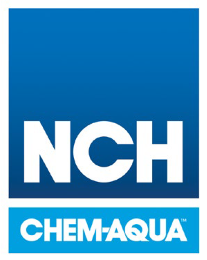Our Water Treatment Solutions
From cooling towers and boilers to closed-loop systems, Chem-Aqua provides comprehensive water treatment solutions tailored to your unique operational needs. Our programmes are designed to manage water quality, protect critical equipment and contribute to long-term sustainability and efficiency.
Get Expert AdviceWater Treatment for Steam & Heating Systems
Water Treatment for Cooling Systems
Legionella Risk Management
Get Clean, Keep Clean™: Improve Your Operational Efficiency
Every water system comes with its own unique challenges. That’s why our 360° approach tailors water treatment programmes to meet your specific needs. By integrating advanced technology, efficient chemistry, and expert support, we help you achieve operational efficiency, maintain compliance, and reach your sustainability goals—today and for the future.
Achieve Water Management Excellence with Our Innovative Technologies
At Chem-Aqua, we redefine water management with innovative solutions designed to optimise your water system efficiency and make your operations more sustainable. With a focus on advanced technologies, we target safer, more efficient, and environmentally friendly practices—empowering you to achieve excellence in every drop!
Microbiological Control Programmes
Solid Water Treatment Solutions
Online Monitoring and Control
Elevate Your Sustainability Profile with Chem-Aqua
Protect the environment with Chem-Aqua’s Resourcefully Green Water Treatment Solutions. Our expertise lies in designing water treatment programmes that align with your sustainability goals. Partner with us to create a meaningful impact—benefitting both your operations and the planet.
Contact usSave Water and Energy
Conserve resources through efficient water treatment and operational management, lowering usage and costs.
Reduce Packaging and Waste
Minimise waste with sustainable treatment options and recycled packaging.
Become More Sustainable
Achieve measurable results that align with your safety and environmental goals.
Manufacturing and distribution at NCH
Contact us
Ready to explore how Chem-Aqua can meet your water treatment needs? Fill out our contact form, and one of our team members will get back to you shortly. Prefer direct communication? Reach out to us by phone or email using the details below.
Didn’t find what you need?
Take a look at our other application areas or contact a member of our team to discuss your needs further.
Explore all applications





